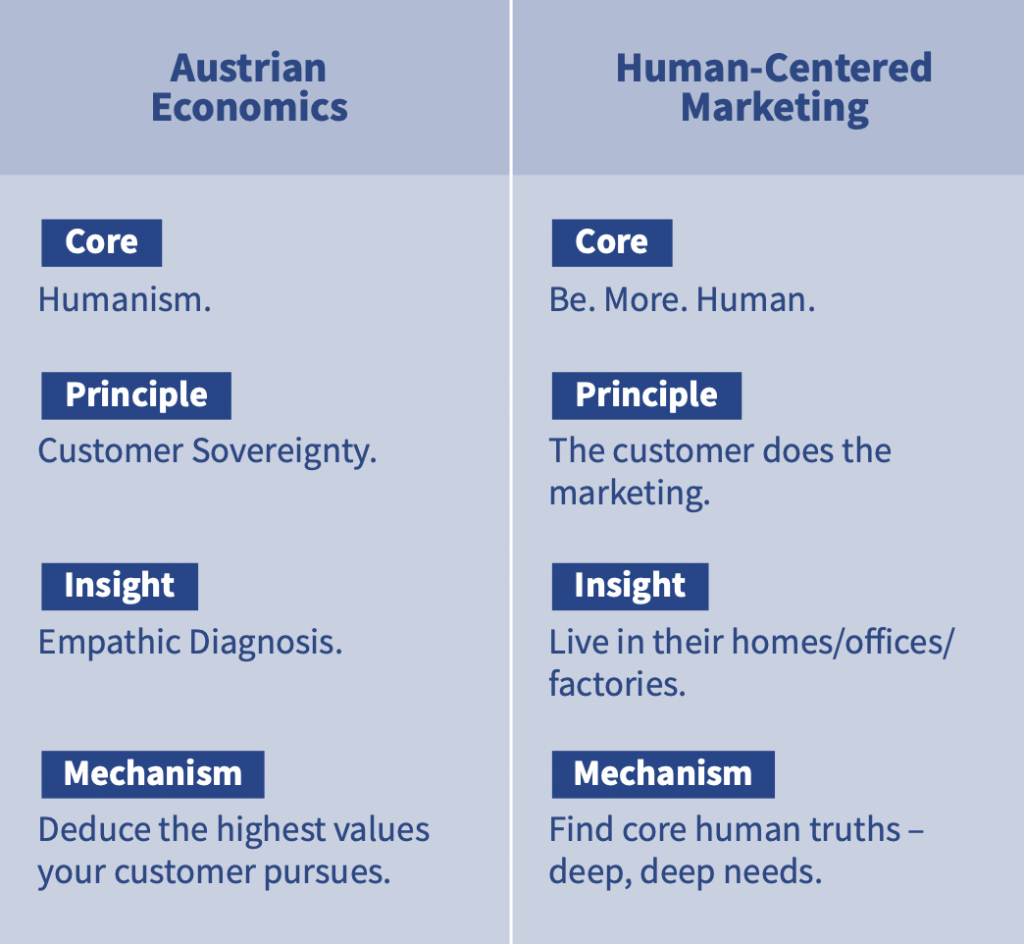The Value Creators Podcast Episode #69. AI, Trust, and the Return to Human-Centered Marketing: A New Marketing Framework with Bryan Phelps
Listen to the episode here:
Many businesses and business functions are grappling with the question of the role of AI in future value creation, none more so than marketing agencies and the marketing function in business. Bryan Phelps is CEO of the marketing agency Big Leap, actively navigating this challenge every day. Bryan shares how his team developed a clear AI policy to guide innovation—and why humans must remain at the center of creativity, decision-making, and brand expression.
This episode is a practical and forward-thinking look at how businesses can build trust, scale responsibly, and stay human in the age of algorithms.
Key insights include:
- Why your AI strategy should start with a policy—and how to align teams with clear principles.
- How to preserve brand essence and emotional connection while integrating AI into marketing.
- Why trust and empathy are the new growth engines—and how to lead with values, not just data.
If you’re building a brand in the age of AI, this conversation will help you navigate the future with clarity, integrity, and confidence.
Resources:
➡️ Learn What They Didn’t Teach You In Business School: The Value Creators Online Business Course
Connect with Bryan Phelps on LinkedIn
Connect with Hunter Hastings on LinkedIn
Subscribe to The Value Creators on Substack
Knowledge Capsule
1. Don’t let AI replace or eclipse Human Creativity
- Big Leap’s first principle is keeping humans at the center of marketing strategy.
- AI tools support ideation, but don’t originate brand essence.
- The best outcomes emerge from human-AI collaboration.
2. The best way to navigate the AI challenge is to start with Policy, not with Technology
- Big Leap created a 9-point policy before deploying AI tools.
- A clear framework builds internal confidence and external trust.
- Policy drives alignment across teams and clients.
3. Responsible Design Demands Human Oversight
- AI can generate inaccurate or misleading – or just not very good – outputs.
- Users must verify quotes, facts, and context, and provide critique.
- Responsibility is shared between tool and operator.
4. Brand Essence Must Be Protected
- AI should enhance—not dilute—core brand identity. Does it truly understand?
- Bryan suggests building a “brand avatar” that holds the brand’s soul.
- Human input can train AI on voice, tone, and values.
5. Experimentation Fuels Innovation
- Big Leap runs dozens of simultaneous experiments, without assuming the right answers in advance.
- Testing helps discover new formats, messages, and channels.
- Speed of iteration becomes a competitive edge.
6. SEO Is Evolving, not Static. But it’s still SEO.
- Traditional keyword search is shifting toward knowledge exploration.
- Brands must optimize for questions, not just clicks.
- Bryan emphasizes helpfulness over hacking the algorithm.
7. Trust Is the Foundation of Modern Marketing
- Metrics like engagement – a mechanical idea – must be reframed as emotional outcomes.
- Marketing returns to its roots: relationships, trust, value.
- AI helps, but human touch builds brand love.
8. Big Companies Must Embrace “Venture Mode”
- Startups iterate fast—enterprises must learn to do the same.
- Bureaucracy can’t keep pace with AI-enabled shifts.
- Big Leap helps large firms act with entrepreneurial agility.
9. Clients Want Impact, Not Just Efficiency
- AI enables better brand perception, faster results, and meaningful insights.
- Bryan notes a shift away from pure efficiency to effectiveness.
- Value creation now trumps cost-cutting.
10. Brand Monitoring Must Extend Beyond Owned Media
- Teams now track Quora, Reddit, and other forums for consumer and customer insights.
- Presence in conversations requires both listening and participating.
- Tools + human review ensures brand is represented “lovingly.”
11. Communities Can Be Built Intentionally
- Brand communities don’t have to be organic only.
- Bryan discusses how to nurture them with content, interaction, and value.
- AI helps scale presence—but humans spark connection.
12. Optimism in a High-Speed World
- Bryan believes we should welcome change—and prepare for it.
- Culture, systems, and mindset help Big Leap adapt.
- Relationship-based marketing is the stabilizing force amid AI disruption.
